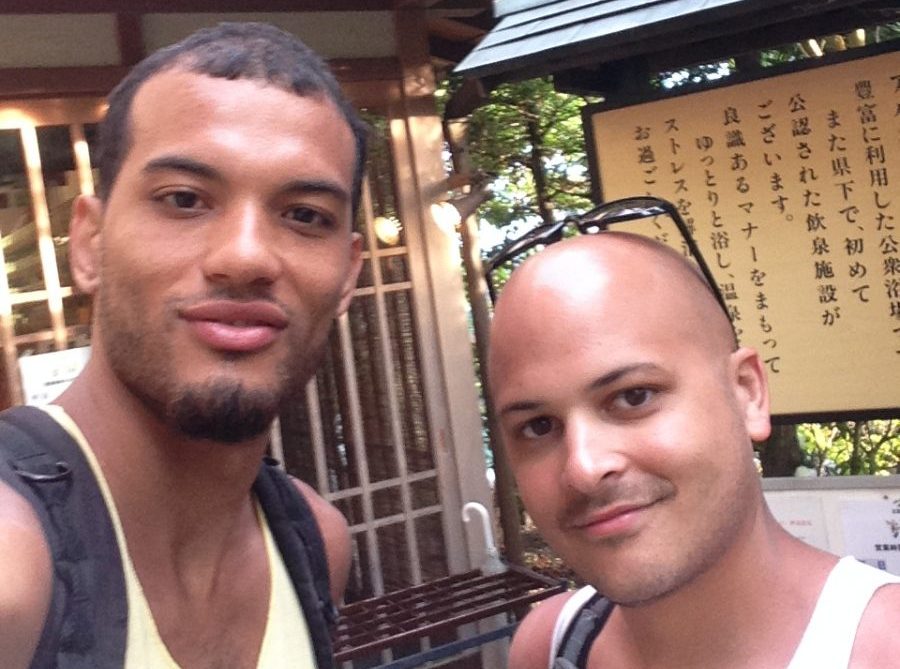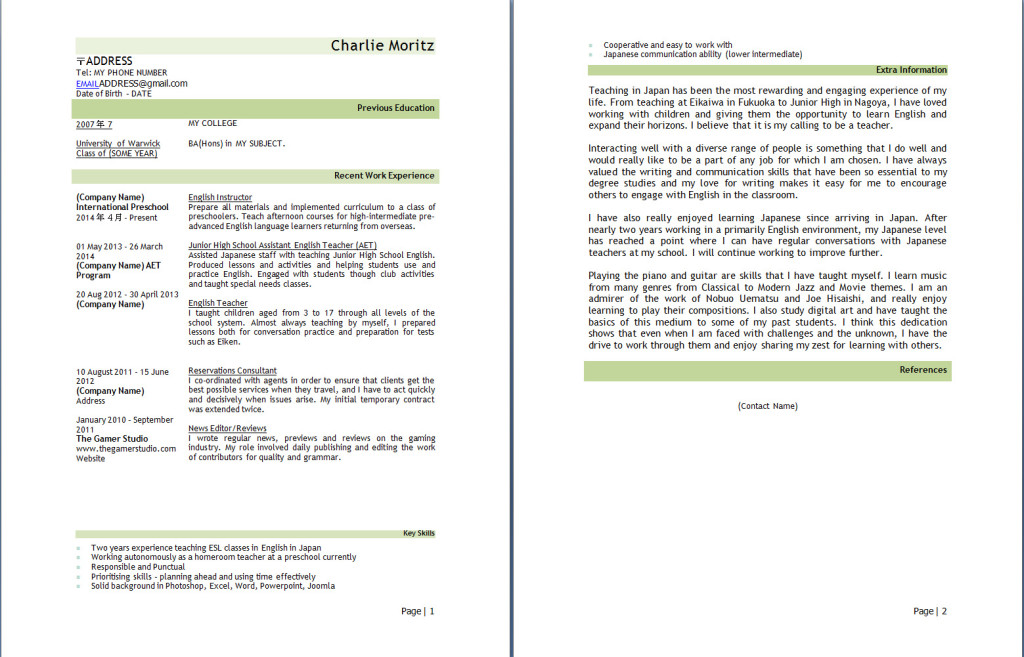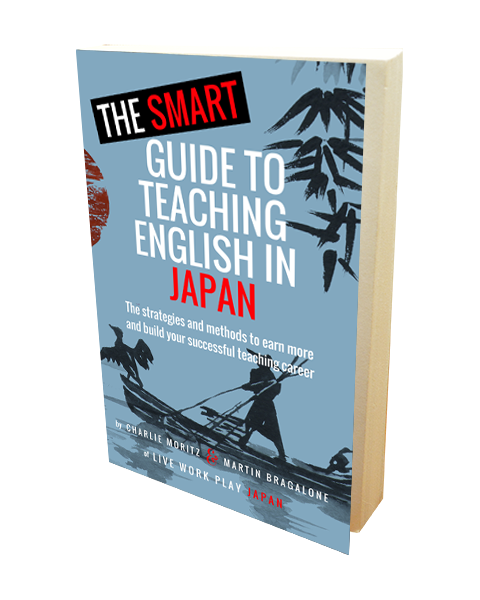If you want to get a English Teaching job interview in Japan, you need to prepare!
I remember my first job application from within Japan. I was quitting my first company and wanted to get this job at an international school in Nagoya. The deadline was the following week and I was desperate; the money was great and it looked like a much better position.
I was in a panic and wanted that panic to just be over, but luckily before I sent my hastily pulled together CV and cover letter, I double checked and ran it past a few friends. One of them told me:
“This isn’t ready.”
When you’re desperate to meet a deadline sometimes you will make decisions that aren’t in your best interest.
Rule #1: Slow down, take your time writing your resume.
There is usually time to put more effort into your individual applications. Make sure that before you submit that you have done everything you can to show the company that you are the right person for the job and that you have everything they are looking for.
Specifically rewrite your statements and even your resume for every job you go for. Personalise it for the job they are offering and you can get a great deal of success! You will look like you wrote your whole application just to get the job they are offering.
With that in mind, let’s move on to some of the things you can do to guarantee you get that interview!
Rule #2: Spell it out. If you don’t craft a narrative with your resume, you aren’t doing it right.
I once heard a friend say: “I’d get the job if only one of these companies was smart enough to see that I’m more than qualified to do this.”
Uh, hello?
It isn’t the company’s responsibility to prove that you are qualified. It’s yours! Take the following real but slightly modified job description in an ad for a teaching job as an example of how to spell out to your employer that you have what they are looking for:
ASSISTANT LANGUAGE TEACHER.
Full-time, 30 working hours/week, 15 teaching/class hours/week, M-F. 300,000yen/month. Assist instruction of English classes in elementary and junior high schools. Work location –(Tokyo)–. Native English speaker, and BA/BS required (preferably in education or related fields). Proper visa, and one year experience teaching young learners in Japan preferred. SCHOOL PREFERS THAT APPLICANT CURRENTLY RESIDE IN TOKYO. Visa Sponsorship available. Accommodation: “we will assist you in finding accommodation.” Paid vacation, and health insurance. 7 months-1 year renewable contract. Application deadline May 1, 2015. Position begins August~September, 2015. Apply by e-mail with CV/resume, cover letter, photos.Credit: Ohayo-Sensei
See those bold bits up there? Those are things that you could easily spell out in your application, resume or cover letter.
Job Description: Work Location Tokyo.
Answer: I live in Tokyo!/Am planning to relocate to Tokyo./I want to live in Tokyo!
Job Description: One year experience teaching young learners in Japan preferred.
Answer: I have 1.5 years experience teaching young learners in Elementary and Junior High schools in Japan.
Spell it out for them and you will immediately qualify yourself for the position and make it far more likely that you will be invited for interview.
Rule #3: A concise resume is better than a lot of irrelevant padding.
This has been said in a lot of other places, but HR people don’t have much time to look at your application. Actually a lot of schools in Japan don’t even have an HR person, just someone who has to review applicants as part of their other full-time job. They don’t wanna be reading through a ton of useless information.
Your CV/Resume should be only valuable information. For most people under the age of 25 this means ONE PAGE. There really is no need to be stretching things out to make it look like you’ve done more than you have. If you’re young then it’s ok, nobody is expecting you to have done much – don’t waste their time!
This is the first CV I sent out after coming to Japan:
Lots and lots of space fillers and generally useless information. Inconsistent layout and constantly talking about “Me, Me, Me” make it hard for any potential employer to read.
Now it is just one page, with ONLY my relevant teaching qualifications and experience, and a small part about extra skills I can bring to the table that may be relevant to the positions I’m applying for. The only case where this is not true would be university positions where you have a lot of publications, and in that case I would send those publications as a separate document.

Check it out! Looks much better, crafts a real narrative about what I believe and who I am, and makes it clear to any company why they should hire me.
I used this one when applying for a job that had a possibility to go overseas with students for a trip or homestay program, so in this case including my travel company experience was a plus, but in other ones I might relegate this to a single line on past work.
This CV has gotten me many more interviews than the previous one, and not just because of the content or the layout, but because of the consistent narrative. What kind of person am I? What does my CV tell an employer that I am skilled in?
Notice that I have obtained a TEFL course not before, but after coming to Japan. This was an easy step, didn’t cost me much but definitely increases the odds of me getting a call to interview. It shows a basic level of academic interest in teaching, which is useful if that is what you are doing and you don’t have an education related degree.
This and other things help you to tell the school who you are, and make every sentence earn its way onto the page.
My CV says that I am a career teacher with skills to match, a TEFL qualification and years of teaching clearly highlighted as a key skill.
Rule #4: Write a KILLER letter of intent for every school.
Explain your teaching philosophy and what value you bring to your students.
NOT:
I like to teach young learners because I love to help them learn, and I find it very rewarding to see them learn something new for the first time.
I, I, I… learn, learn, learn…Why would you just talk about what teaching does for you?
It’s nice that you enjoy your job, but it is more important that you talk about what your teaching skills do for the kids! That will differentiate you from all the other teachers who also like what they do.
BETTER:
Young children benefit hugely from the styles of teaching that I use, helping them to become not only great English speakers, but kind and thoughtful friends as well. My classroom is a community where every member can feel cared about and free to bring any questions or opinions to the table.
Yes! Yes! Yes!
This paints a much better picture for any employer about how their school will benefit from having you there, and how their students will interact with you.
Rule #5: Call the school after you send them your resume.
I always make it a point to contact the school directly a few days after I have sent my application. Putting a voice (a polite one) to a CV builds more rapport than just another email in their inbox that needs to be read.
Here’s an example script I have used:
Me: “こんにちは、チャーリーと申します。[contact name]がいらっしゃいますか?”
(Hello, my name is Charlie. Is [contact name] present/in the office?”)
(In polite Japanese, stick it into Google Translate if you aren’t sure how this is supposed to be read.)
The contact for the English teaching positions picks up the phone – 99% chance they will speak English if they are hiring for the position.
“Good morning, My name is Charlie. I am just calling you to confirm that you received my application for your school.”
“Yes, we did.”
“That’s excellent. If you have any questions please feel free to email or call. I’d really like to meet you and see if I would be a good fit for the position there.”
The conversation should last no more than a minute since they are probably very busy, and you don’t want to annoy them. End with “Thank you very much for your time” and this simple call will stand you in good stead to get that interview!
Martin’s Winning Script
I want to add a few extra tips to help you increase conversion on more of your applications. First thing is definitely follow Charlie’s rules above. If you still aren’t able to convert job opportunities, then follow these last tips and you will be well placed to get an English teaching job.
– Last extra tip: Look up one to two names of people who are or appear to be in a hiring capacity at your target school or company. Do not ask for the manager, the principle or something like that. Get a real name. Most company websites for schools and mid-sized companies will list the names of teachers (often with a profile pic to go with it), principles and in the case of Eikaiwa (English conversation schools), the names of branch managers. The chances you will reach a real person that has the ability to influence your being hired rises a great deal by knowing the name(s) of the personnel you need to contact and calling.
If for whatever reason the person on the other end says something like, “Sorry I couldn’t get back to you yet. But we have decided not to go forward with your application at this point.”
Great, now you have the person on the phone who saw your resume & application and can tell you exactly what they didn’t like (in other words, how to improve it!). Ask them. Don’t just hang up!
You can respond:
Good:
“Oh I am sorry to hear that. Was there something about my resume or application that didn’t meet your expectations?”
Better:
“Oh I am sorry to hear that. I really wanted the opportunity to teach with _______ (name of company or school) because ___________ (insert something unique about their company/school like one of their core values listed on their website).
***This is a really polite way of complimenting them and at the same time making them consider why they won’t hire you!? Best case scenario, he/she says they will find a way to hire you anyway or at least give your resume another look. Worst case, they politely thank you and no harm done***
“What advice would you have for me to improve?”
***If you forget to say anything else, say this! Take their advice and get back to applying to other companies***
– Last extra tip for the really Bold out there who are on the ground in Japan:
The Grandpa’s Method
A tactic that has worked for thousands and thousands of years. Trust me: this works.
I was living with my roommate Marco in a 2DK (two bedrooms, dinning room and kitchen) in Shinagawa. Rent was not cheap. We needed both incomes to handle it. All seemed well and good until one day he walks in and says he quit his job! He had little in savings and no other prospects at all! Rent was due in like 15 days! To put it lightly, I was a bit surprised. He was a recruiter at the time but the stress was too much for him. He told me that he wanted to just teach English again.

We were desperate. We didn’t have time for secretaries to be politely answering his job request emails at their leisure. He needed a job and he needed it now.
Following my advice he landed a job in just seven days after his walk-ins that paid 280,000¥. That is right. He actually was able to increase his income by adding a little aggression to his hunt.
Salary before using the Grandpa Method: 250,000¥
After the Grandpa Method: 280,000¥!
Check out that podcast for this awesome technique.
If you follow these rules, you will get interviews for English teaching jobs.
Next time I’m going to give away my secrets to high-performance at an interview. I have taken dozens of interviews in Japan, and from taking detailed notes and developing a simple strategy, I’m confident that I can help you guys improve your performance and get the job you’ve worked so hard for!





